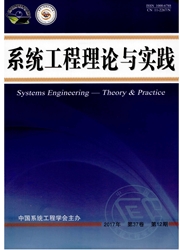

 中文摘要:
中文摘要:
银企信贷关系中的信任,可以有效减少代理成本和机会主义行为,对缓解小微企业信贷约束有重要启示.提出一个银企间信任的博弈分析框架,从自利、互利和利他三方面分析信任的动机,并通过问卷调查实证检验银行信任对小微企业贷款可获得性的影响.结果表明:1)信任对信贷博弈均衡结果产生关键影响,双方较高的互利倾向和正的利他倾向可促使帕累托最优均衡的实现,且随着关系距离的拉近和信任的加深,双方利他与互利倾向逐渐增强,信任与合作可能演化为长期稳定均衡;2)银行信任对小微企业信贷获取的影响显著,高程度的信任有助于提升小微企业的申贷成功率.为小微企业信贷中的信任研究提供了有力证据,也为解决小微企业融资难问题提供了参考.
 英文摘要:
英文摘要:
Trust within the lending relationship between bank and small and micro-enterprise (SME) contributes to reduce both agent cost and opportunistic behaviors, suggesting an alternative solution for easing credit constraints of SME. This study proposes a game theoretical framework for trust between bank and SME, which analyses from three perspectives including self-interest, reciprocity and altruism. It also provides empirical evidences on how trust influences on SME's loan availability. The findings have shown that: 1) trust plays a crucial role in explaining credit game. Higher initial reciprocity and altruism propensities of both parties are able to promote the realization of Pareto optimal equilibrium, and cooperation could evolve as a long-term stable equilibrium along with deepened relationship and mutual trust. 2) SMEs that enjoy a higher level of trust from loan managers can obtain more bank loans and be less credit constrained. This study not only emphasizes the importance of trust in SME lending, but also provides some implications for the issue of SME financing dilemma.
 同期刊论文项目
同期刊论文项目
 同项目期刊论文
同项目期刊论文
 期刊信息
期刊信息
